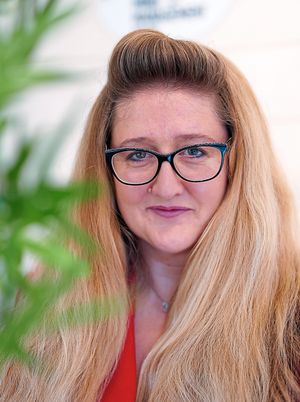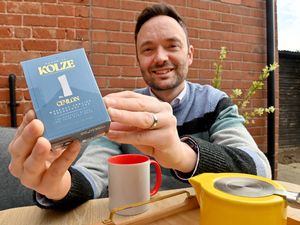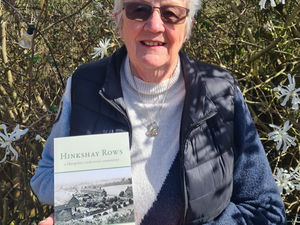World Mental Health Day: how we can develop healthy habits that can help us cope on a daily basis
It’s time for us all to consider how we are feeling and how we can reach out to those around us who may be struggling.

This Monday is World Mental Health Day, an ideal opportunity to take a few moments to reflect on our own wellbeing.
The event, marked annually on October 10, aims to raise awareness of mental health issues around the world.
Difficult times can take their toll on our mental health. We’re all still coming to terms with the impact of the Covid pandemic and the social restrictions that left many people struggling.
In recent months, the rising cost of living has also left many of us managing extra worries and stresses.
In a single week, at least one in six of us has problems with our mental health, according to the government’s major study of adults in England.
This year’s theme for World Mental Health Day, set by the World Health Organisation, is “make mental health and well-being for all a global priority”.
Charities as well as health and support organisations will be taking the opportunity to re-kindle their efforts to protect and improve mental health.
We can all take small steps to boost our wellbeing and help us cope with challenging times.
The Mental Health Foundation has recently produced a new guide featuring the 11 most effective ways for people to protect their mental health.
The free guide, Our Best Mental Health Tips, is based on the Foundation’s own ground-breaking study on what protects people from common problems such as anxiety and depression.
The study combined existing evidence about how we can protect our mental health with experts’ views, alongside the opinions of members of the public.
Dr Antonis Kousoulis, who led the research and is a Director of the Foundation, said: “Our new guide encourages us to take care of the fundamentals of life – our relationships, our experiences, our bodies and our finances.
“The evidence shows that this is far more likely to keep us mentally healthy than the gimmicks and miracle cures promoted by some in the ‘wellness’ industry, who prey on our vulnerability.
“The truth is, there are no quick fixes for good mental or physical health. What works is developing healthy habits in our daily lives, that help us to feel OK and able to cope with everything.
“For example, in our new guide we talk about getting more from our sleep, learning to understand and manage our feelings, planning things to look forward to and getting help with money problems.”
As we go through the change of the seasons, we can feel different, says registered qualified counsellor Sheila McMahon.
“We are on the cusp of autumn, with the changes of colour in the leaves and beauty in nature.
“But some find this time difficult with less sunlight and less options to get our Vitamin D dose.
“We’ve also been on an emotional rollercoaster for the last couple of years with Brexit, the pandemic, the rising cost of living and the passing of The Queen,” explains the CEO of Mind Management For You, based in Staffordshire.

Sheila has offered her advice on how people can cope at this time of year especially with everything that’s been happening around us as we acknowledge World Mental Health Day.
Delayed grief
“The Queen’s passing has had a big emotional impact on a lot of people,” says Sheila.
“The Queen was a constant that most people knew for most of their life. The period of mourning gave some people permission to grieve. I also noticed how it also allowed for ‘delayed grief’ to surface too! Ever heard someone say, ‘If I start I will never stop’. Some people have been in ‘survival mode’ since the beginning of the pandemic and not had time to process loss. People need to cry and let go sometimes. People need to be ok with not being ok.
“If you are reading this and feel like you need a good cry, then I really encourage you to let it out! Some people need to watch a sad movie, or listen to a significant piece of music to connect with sadness. It is so important that we make time to have a good cry!”
Depression
“If you find yourself living in that sad place for a long period of time, then you may have depression,” says Sheila.
“If that’s the case, then I really encourage a chat with your doctor. I say a chat, as I am very aware of how hard it is for some people to see their doctor at present.
“Regarding the lack of Vitamin D from the absence of sun, as the nights draw in, some people fine ‘light boxes’ helpful. You can research about them to see if this might be something helpful for you?”
The rising cost of living
The rising cost of living is something that we can take step by step, Sheila advises.
“As Martin Luther said: ‘You don’t have to see the whole staircase, just to take the next step’
“The next step might be to speak to someone about your concerns. That can be a friend, a neighbour, or a financial advisor about options around support.
“You might decide to watch programmes by Martin Lewis to find out his latest advice and tips.”
Heat or eat?
“I was speaking with a friend, who remembers a time of living through hardship when he and his family had to choose between heat, or to eat,” says Sheila.
“His family got through it and we need to remember that most people will fall on hard times at some point during their lives but that doesn’t mean it has to be forever.
“Ironically, experiencing hard times can bring families together. It can also highlight the value of money. It can create an appreciation of money and can create healthy habits around the importance of saving.”
You are stronger than you think
“We are stronger than we think. We have gotten through a pandemic, and we can be reassured that we can continue to get through autumn and winter,” says Sheila.
“I’ve lived in the UK for 20 years and I decided to do a 20-year timeline to reflect on what I’d done during this time. I was so surprised what I’d achieved. I asked myself: “If I told myself 20 years ago what I was going to achieve, would I have believed myself? Probably not!
“When we reflect over time, whether its five, 10 or 20 years what we’ve achieved, it can make us realise that we’re stronger than we think and that we’ve more resilience than we realise.”





